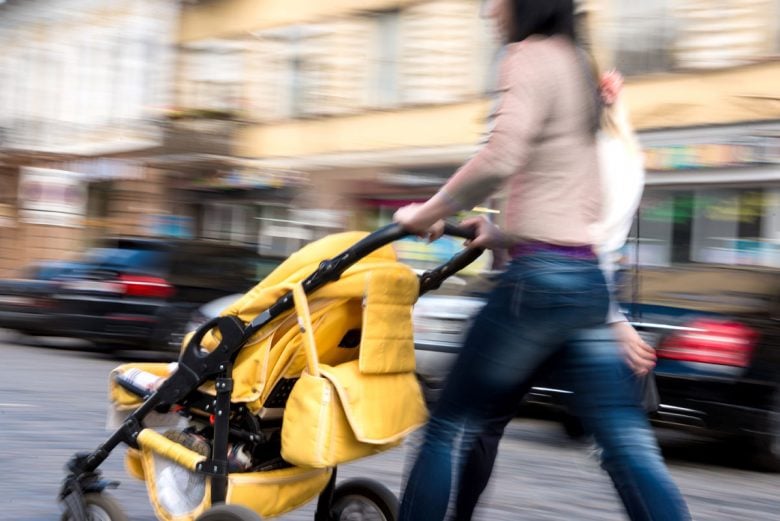
Your challenge this week will make your family happier.
As a Type 3 mom, you’re a powerhouse who can get a lot done. But if your big energy gets out of balance, you can cause your children more stress than you realize.
In this episode, Carol and Anne give Type 3 moms simple tips to get things done while still making sure your children have what they need.
This week’s Parenting Practice
Choose one (just one!) of the three mistakes that Carol and Anne share in this episode. Which one of these tendencies is not serving you or your family best? Take it as your challenge to bring that tendency back into balance—both for your sake and your family’s.
Transcript of podcast episode
Carol: “Oh my goodness, this woman never stops. Do they even pay attention to us?”
Welcome to The Child Whisperer Podcast. I’m your host Carol Tuttle, author of the best selling parenting book, The Child Whisperer. I’m with my co-host, Anne Tuttle Brown.
This is our third podcast in this series we’re calling, “Mistakes Each Type of Mother Makes.” And again to just give you a disclaimer: you’re not consciously making these mistakes, yet you have certain tendencies that can get the best of you, that will get the best of your family, if you’re not aware how to manage them because you don’t have a family of your same Type, and you also can create dysfunctional habits and tendencies with things that are truly your gifts. So the more awareness you have, the more you can manage it to create successful outcomes. We are now talking about Type 3. This is my space, and I’m here to say that I’ve made every one of them. I’ve made every mistake.
Anne: Yes she has. I’m just kidding.
Carol: I have a child sitting here with me that will reinforce that fact. Yet it would have been amazing if I had had this information that I could have prevented it. And so learn today so that you can make different choices and prevent unnecessary side effects with your children’s experience with you. Okay, Anne, you tell us the first one. What was the first mistake I made?
Anne: Let’s review Type 3 energy: push forward, active, reactive, dynamic, swift-moving energy.
Carol: Would you say that’s me?
Anne: Yes, 100%. Type 3s are very result-oriented, result-driven, and the tendency can be to get so focused on that result that you just, kind of, bulldoze everything that’s in your way towards the result, focus more on your doing than on everyone’s wellness and being.
Carol: Yes, it’s like the result becomes the priority and not the people around you. And yes…
Anne: And you’re trying to enroll everyone around you to get the result, and you’re like, “Ugh.”
Carol: It should be everybody else’s priority too because you want to really accomplish that and it’s not… and especially on a spousal level, because you want them to be as motivated as you are about certain results and it’s just not their orientation. This plays out especially in chores—things you want to get done around the house. You just want to, “Come on snap to it, let’s everybody get their jobs done, let’s do this.” It’s functional when people are in a good place, it is done in a balanced way so it’s not just the mood of every day. Every time you’re with your children it’s about, “Go go, do do, result result,” where your children are going, “What about me?” and, “Do you ever stop and just look me in the eye?”
Anne: “The only thing I’m ever doing with my mom is doing something. Like, can we just be still for a minute?”
Carol: Right, I would have spent…I’ve said that for years now with what I now know I would have stopped more often on a daily basis and just sat down and spent more time with my Type 2 children, which I didn’t do that as much as it would have supported them in their early years. I do now, though. I stop and look at you and pay attention and stop what I’m doing.
Anne: Not right now.
Carol: Well, I stop what I’m doing because it’s very typical for a Type 3 parent to just…a child comes to you…
Anne: I’m listening while you’re chopping veggies or you are on your phone.
Carol: Yeah, yeah, your child comes to you with something, that they’re reaching out or they have a request and you stay busy with what you’re doing rather than stop what you’re doing and engage with your child 100% in body language and vision and listening.
Anne: This is a helpful tip for me too, even though I’m not even a Type 3, but I think any mom can relate to this just because you’re busy and you want to just keep moving forward.
Carol: We’ll be moving so quickly too because we have the swift quality to our process. They’re noticing they are still engaged. I had an interesting experience. We recently went to Israel and the concierge at that very high-end hotel we were staying at in Jerusalem, he was a Type 3. And you think at a concierge desk they’re going to stop, look you in the eye and serve you with whatever your question or inquiry is and he didn’t. He kept typing on his keyboard looking at his screen as he answered our question. And I went, “This is so classic. I’m sure I’ve done this many, many times in my life.” So where you’re doing this as a mom, as a Type 3 mom because you’re so committed to the result that you just, you know, you’re going to keep it going because you’re almost there. And this leads to the second tendency. They actually are very relatable that because of your push-forward, results-oriented nature and taking action to accomplish things, your whole family is running on your energy. I have seen this a lot where the children are all operating in the energy of their Type 3 mom. If you’ve got a bunch of Type 3s that would probably work out okay for you but most families are not of that makeup and the ones that pay the biggest price are your Type 2 children. Well, all your children will pay a price because they’re not feeling their own nature, their own connection with their own energy. They’re playing off yours. It’s like they’ve plugged into you, you’re the generator and you’re dictating the movement of the home. That is not supportive, that’s been a real eye-opener for a lot of Type 3 moms as they, kind of, stop and look and go, “Wow, this whole household is running by my whole movement.” That’s not serving your children because…
Anne: What happens, because it’s like, great, everybody is following along. It could look as positive but what are the side effects?
Carol: They’re stressed. Your Type 2s are whining more, your Type 1s are sporadic and losing their homework, your Type 4s always want to go to their room as often as they can. They’re trying to get out of it. They’re trying to… You know, there is a stress factor that you’re now dealing with that you then are trying to address while you’re running like a machine.
Anne: How does everybody get on to your track? What initiates that?
Carol: We have a substantial sort of like bulldozer energy, okay? Big energy. You’ve noticed it in your daughter. I just recently visited my daughter and my Type 3 grandson is now nine, and I’ve seen a major…it’s like he had to grow…I’ve said this, the energy is a bigger energy than the container that it’s in. Until a child gets to be around age eight, nine ten, you’ll start to see a grounding effect in a Type 3 child where they manage it a lot differently than they could at 3 to 6 when they’re moving in the world. We are the same as a parent that our energy can take over, take charge if we’re not bringing it back and kinda going, you know, pulling it back to us. You can even just do this little energy trick where you imagine the energy is like a blanket that is over your family. Well, pull the blanket off everybody and wrap it around yourself. It’s yours. You want to use it as an asset to support others. We have a gift as all Types do to benefit from our energy but not live them. So just notice that variable. It’s not serving my family to all run… You’re paying a price, there is a fallout from it that you don’t want, that is now causing you to think there is these disciplinary issues you have to deal with: whiny children, stressed out kids, children that want nothing to do with you. So you get rid of all that.
Anne: In a way, they’re like, “I want nothing to do with living by your energy.”
Carol: Yeah, “I can’t keep this going, it’s stressful to me.” They don’t have awareness as to why, they’re just trying to come up…they just know it’s not…it doesn’t feel good.
The third tendency is to not have a healthy outlet for your active reactive nature so that it’s coming out in unhealthy ways as a parent and how you are parenting. Getting upset too often, reacting to things in more intensity, talking more than you need to, repeating, you know, trying to get your children to respond to you, getting reactive when they do not because you don’t have a healthy channel of expression for that. What would that look like? For me it was getting outdoors, getting into more intense competitive play when I played a lot of years of tennis.
Anne: You always had a side job, too. When we were little little, you were doing crafts and wood cutting and…
Carol: Yeah, I always had an entrepreneurial pursuit that I was involved in.
Anne: Which I think is really helpful. As a Type 3 mom, do you have something that you’re passionate about? If it does look more physical like exercising or being outside, gardening, or is it some project or is it something that..idea that you have that you’d really like to start, a side job or something? It has to be something that you are excited and passionate about and that will just fill this outlet of wanting to be hands-on and engaging with the world in that way.
Carol: An active-reactive nature is more, I need outlets to take action to get reactions which are results. Action to create results which doesn’t involve hauling four children with you to do it.
Anne: Yeah, has a more independent quality.
Carol: Yeah, you’re like, “I’m out doing my thing.”
Anne: And It’s not based on your kids’ schedules or what your kids are involved in. It can be something that is yours. I think that’s really healthy.
Carol: You got to get out, you just basically spending…
Anne: Some of your kids might not want to go out all the time as much as you do. Find that balance, get a babysitter for you to go out.
Carol: Yeah, I remember once I hired childcare and nanny support in the house. It was amazing to just go shopping without four children and go, “Man, I’m going to move so quick. I’m in and out of here and there is nobody hanging onto me or interfering.” It was great too with that kind of child support that they would actually come over some days and play with the kids so I could just get things done around the house.
Anne: The kids are way happier.
Carol: Yeah, and I didn’t have to…
Anne: Because they had someone to play with them and…
Carol: I had no interruptions. It was like, “Okay for the next hour and a half, it’s like I’m not here, you’re going to take care of the kids.” You’re still here, I’m here but rather than have them do all that stuff, I wanted to do it. I want to get all that done.
Anne: You can move at your pace then without taking your kids along the ride with you, that they can then, kind of, relax into their home and their space. I think babysitters are such a gift and they need to be utilized anyway.
Carol: Good child care is amazing. You could bring into your home support for your role. These are three that are…I’m sure you relate to one or maybe all three, but just choose one.
This week’s parenting practice is for you to choose one tendency that has fallen into a dysfunction. It’s not serving you or your family, and make that correction. Bring it back into balance, use it in your life as a gift. Where is it a gift to you? Where are you by default allowing it to play out that it’s a dysfunctional aspect of your life that can be corrected? You can correct it, you’ll have a challenge. Take on the challenge this week of one of the three. You’re going to show yourself opportunities every day to make the correction. You can do it, you’ll be glad you did because you really want your children loving and adoring you when they are the age of my children and saying, “You know, my mom is really cool. She is very aware, she is very conscious and I really enjoy being with her,” rather than, “Oh my goodness, this woman never stops. Do they even pay attention to us?” And that they get to be their own person around you rather than, “My mom is always in charge, taking over.” Make those corrections now because they will pay off in a huge way in the years to come.
Thanks for listening. For more support, go to thechildwhisperer.com where you can purchase the book, subscribe to our weekly parenting practice email and find a transcription and audio of The Child Whisperer Podcast.
Anne: If you’re listening on iTunes, thank you for leaving a review. If you have a parenting question, please send it to [email protected].



